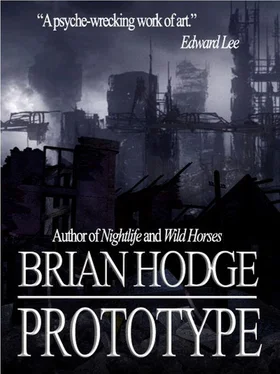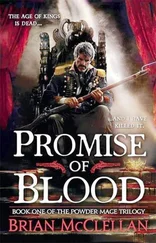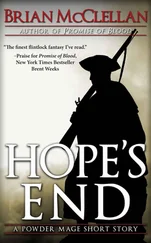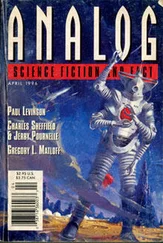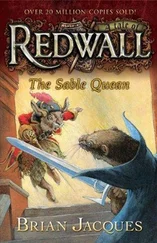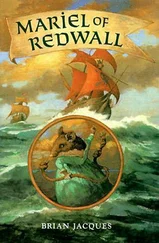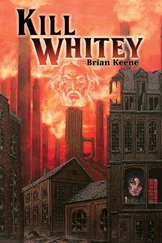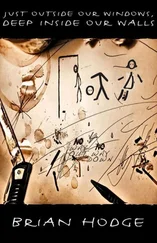The lion feeds upon the gazelle, for if it does not, the land cannot support the gazelles to come.
And he knew that it was systemic perfection this way, plants and predators and prey alike fueled by a singular sun. Then he witnessed the coming of that which did not belong, borne by the Age of Man and Machine, and he understood that an organism fueled by petroleum will crush any and all fueled by the sun, for what is petroleum but millions of years of sunshine stored?
Thus the balance becomes paradise lost.
Kill the lions, the gazelles are doomed to breed themselves to extinction. Prey need predators, it is the nature of the beast. For unchecked growth leads to far worse than tumors.
He watched, then, the death of the savannah, as grass burned into fields of gray ash, and the trees shed an exodus of leaves that left them blackened skeletons curling stark against a sky gone yellow-brown with haze. His skin sloughed in layers of molt and decay, flesh uncoiling to ribbons to strands of the double helix, where all things were written, the most ancient of texts, yet could not revisions be part of the plan?
For what are mutations but defense mechanisms to ensure survival by resistance.
Survival? And he — Clay, yet Not — wondered: But whose?
He saw it crawl over a horizon that burned with the imminence of gangrene and graves, where living twitched to the teeth of starving scavengers, where forsaken prayers flowed, corrosive as bile steaming beneath a dying star.
It was immense, black as shadows and gossamer thin. It was a living night, far from the reach of the sun.
what’s wrong with me? he screamed to whatever might listen. for i am not like others
not like others
not like others
biological override, he thought it told him, and he began to cry, for he thought he understood his part now, a role he never wanted to play in any god’s creation, no matter what the name of the god, when the worst impulses of a species become a written imperative
And as the savannah shriveled to a blackened crisp around him, as he heard the death wails of distant cities, he began to piece together the simple logic that had eluded him long enough:
with no natural enemies, it is inevitable that we become our own
It would make a fine epitaph.
* * *
Clay was sobbing even before Kendra brought him back over the brink of consciousness, mid-evening by now, and Adrienne watched him cross the threshold from the inner worlds to the outer. Thinking, Welcome back, and oh, poor Clay, what did you learn there at the end, and can you ever see things out here the same way again?
One look into his newly opened eyes and she knew she need not ask to know the answer; only wondering, with her own heart feeling so suddenly sunk, how would his feel?
I’ve lost him. God damn her, I have lost him forever.
They began to converge upon him, reaching with hands gone tender with concern, but he would have none of it. Backing away, lurching out of his chair and dropping to one knee with muscles gone stiff from hours of disuse, Clay screamed at them not to touch him. He was dragging the half-full urinary bag behind him like a distended organ. He ripped the tube free and hurled the bag across the room, where it slammed into the wall with a splash of liquid. A gray ceramic mask with black-rimmed eyes and a grotesque stitched-over mouth was jarred loose from the impact, and fell to crack into fragments on the floor.
“Are you satisfied now?” Adrienne snapped at Kendra, the woman’s eyes grave, but what an awful time for I-told-you-so’s.
Clay pushed past them, dropped to the floor amid cold urine and broken shards to find the biggest piece, as if his violently trembling hand was made for it.
He managed to carve two jagged lacerations down his face, from temple to jaw, before they stopped him. It was much longer before they were able to stop the bleeding.
The tears might go on indefinitely.
* * *
Back at the motel she and Sarah got him settled in for the night, slipping him two tranquilizers from a bottle she had no legal right to, technically, but what hospital did not bend pharmaceutical law so long as privileges were not abused?
She considered taking one, too, but didn’t, in case Clay would later need her alert. If she did not understand in full what he’d haltingly told her, told Sarah, it had been enough to convey agonizing generalities: what Clay was, or believed he was, or hallucinated himself to be — one of a vanguard of intraspecies self-destruction, spewed out by a world under the gun.
She and Sarah slept back-to-back, as if the reality of their own drawn faces was too much for one night. Sarah rose before her to a blood-sky dawn, drawing sustenance from air like ice, and went to check on their baleful companion of the road and vision quests. Through sleight of hand, Sarah had kept his key last night, just in case.
“He’s gone,” Sarah came back to report, quietly, with a grinding finality. Quick to laugh and quick to love, she had never been one to cry for no good reason. But when she found one, tears could come in a deluge.
Adrienne sat up, drawing the covers around her to the neck, as tight as a shroud, and shut her eyes when Sarah said it again, this time like an accusation aimed at herself.
“He’s gone.”
The world was the same one he had seen throughout this trip — throughout each of his wanderings — yet it was different in all the worst ways. Imbued with new significances now that he was able to see things as they really were.
Ignorance was bliss and he had never even realized. Too much fundamental knowledge cast all possibility for beauty and wonder to the furnace. His smiles, his laughter… these had been rare enough, as his life had gone, but he had dared hope that one day he might look back on these years as growing pains, and know that he had come through that fire to be a better man who could smile and laugh with ease, maybe even love, and know that these pleasures had been earned.
But now? He would never again know such simple graces; he knew himself instead. For anyone and anything, forevermore, he was ruined.
Hitchhiking north away from Chapel Hill, Clay did not sleep, in neither car nor truck cab, certainly not during the spells when transportation dried up for a mile or two, to leave him walking beside a highway, shrugged deeply into his field jacket like a displaced veteran, one small bag of belongings to call his own.
He spoke little with those who gave him rides, sharing the miles in silence and paranoia. Wondering if they regretted stopping for him once they got a look at the two narrow scabs raked down the side of his face, and went ahead with their offer out of fear of what vengeance he might inflict for their change of mind. He supposed he did look ghastly enough, close up.
From winter’s mild remission in North Carolina he journeyed straight up into its frozen and cancerous heart, where the winds grew more savage with every state north, and the snows more cruel. Past Washington it was all snarled traffic and insanity, and he scanned the car wrecks for blood and mangled lives. He watched distant smokestacks vomit evil clouds into a sky already engorged, and grimy urban lowlands felt like the most fitting realms through which to pass, teeming with addictions and excrements and neon claustrophobia.
And from time to time he could not help but look out over these bleak valleys that not even snow could beautify, as even the snow smelled of chemotherapy, and think, You made me what I am. So live with the consequences, whatever they are.
Soon he amended: You made us what we are. He was not in this entirely alone.
Читать дальше
